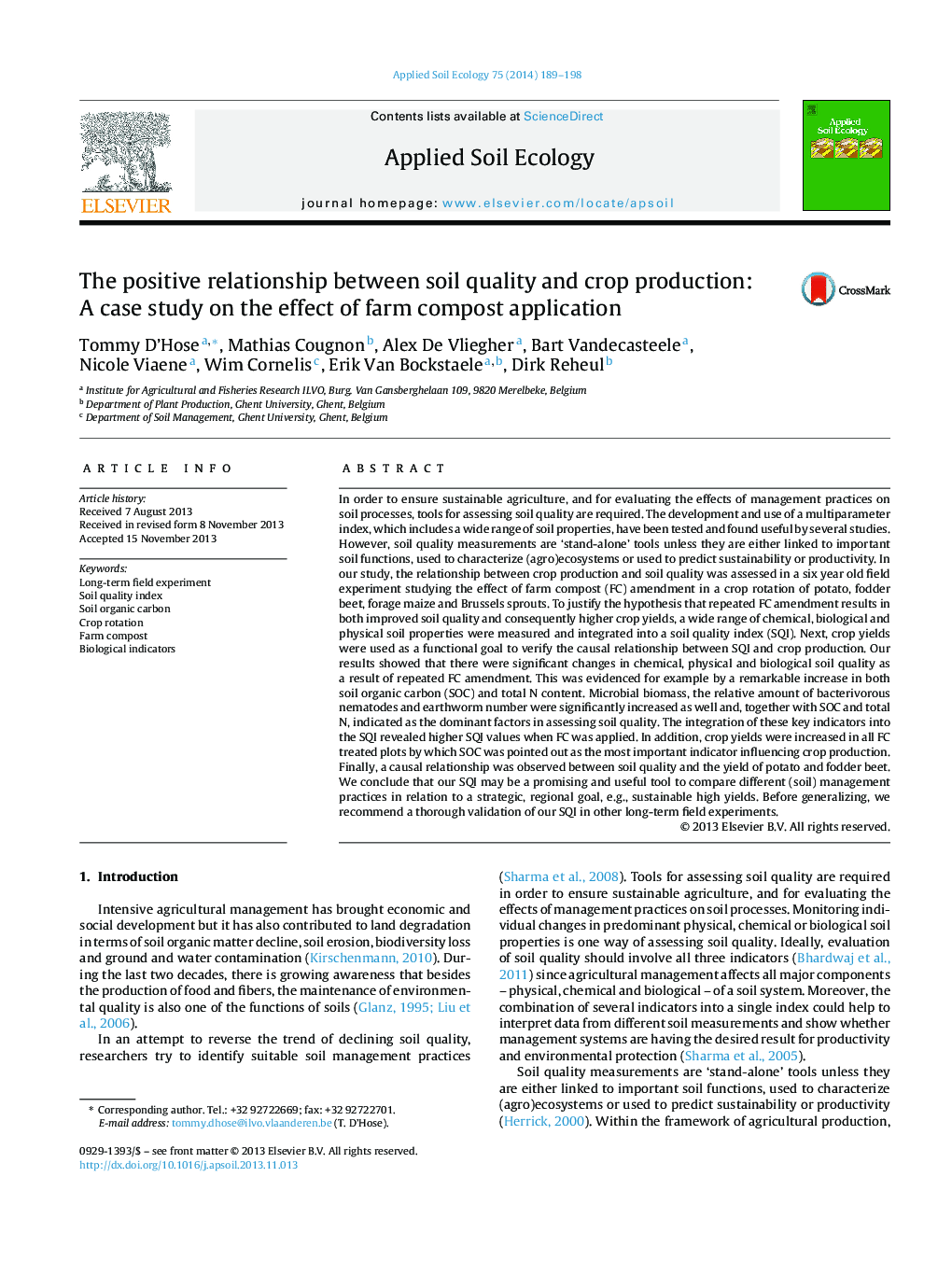| کد مقاله | کد نشریه | سال انتشار | مقاله انگلیسی | نسخه تمام متن |
|---|---|---|---|---|
| 4382294 | 1617808 | 2014 | 10 صفحه PDF | دانلود رایگان |
• Long-term field experiment studying the effect of repeated farm compost amendment.
• Chemical, biological and physical properties were integrated into a soil quality index.
• Farm compost increased soil quality and crop yields.
• Causal relationship between soil quality and crop production.
• SOC was pointed out as the most important indicator influencing crop production.
In order to ensure sustainable agriculture, and for evaluating the effects of management practices on soil processes, tools for assessing soil quality are required. The development and use of a multiparameter index, which includes a wide range of soil properties, have been tested and found useful by several studies. However, soil quality measurements are ‘stand-alone’ tools unless they are either linked to important soil functions, used to characterize (agro)ecosystems or used to predict sustainability or productivity. In our study, the relationship between crop production and soil quality was assessed in a six year old field experiment studying the effect of farm compost (FC) amendment in a crop rotation of potato, fodder beet, forage maize and Brussels sprouts. To justify the hypothesis that repeated FC amendment results in both improved soil quality and consequently higher crop yields, a wide range of chemical, biological and physical soil properties were measured and integrated into a soil quality index (SQI). Next, crop yields were used as a functional goal to verify the causal relationship between SQI and crop production. Our results showed that there were significant changes in chemical, physical and biological soil quality as a result of repeated FC amendment. This was evidenced for example by a remarkable increase in both soil organic carbon (SOC) and total N content. Microbial biomass, the relative amount of bacterivorous nematodes and earthworm number were significantly increased as well and, together with SOC and total N, indicated as the dominant factors in assessing soil quality. The integration of these key indicators into the SQI revealed higher SQI values when FC was applied. In addition, crop yields were increased in all FC treated plots by which SOC was pointed out as the most important indicator influencing crop production. Finally, a causal relationship was observed between soil quality and the yield of potato and fodder beet. We conclude that our SQI may be a promising and useful tool to compare different (soil) management practices in relation to a strategic, regional goal, e.g., sustainable high yields. Before generalizing, we recommend a thorough validation of our SQI in other long-term field experiments.
Journal: Applied Soil Ecology - Volume 75, March 2014, Pages 189–198
